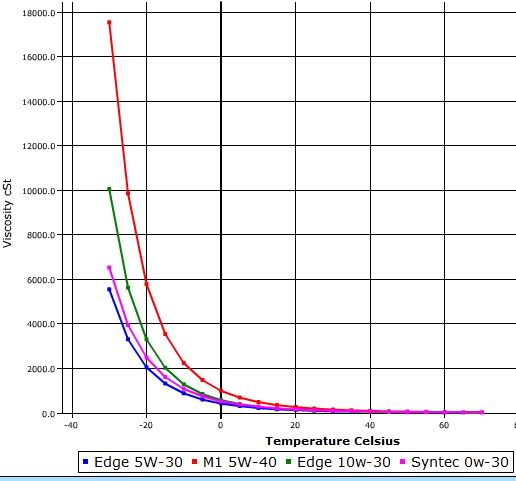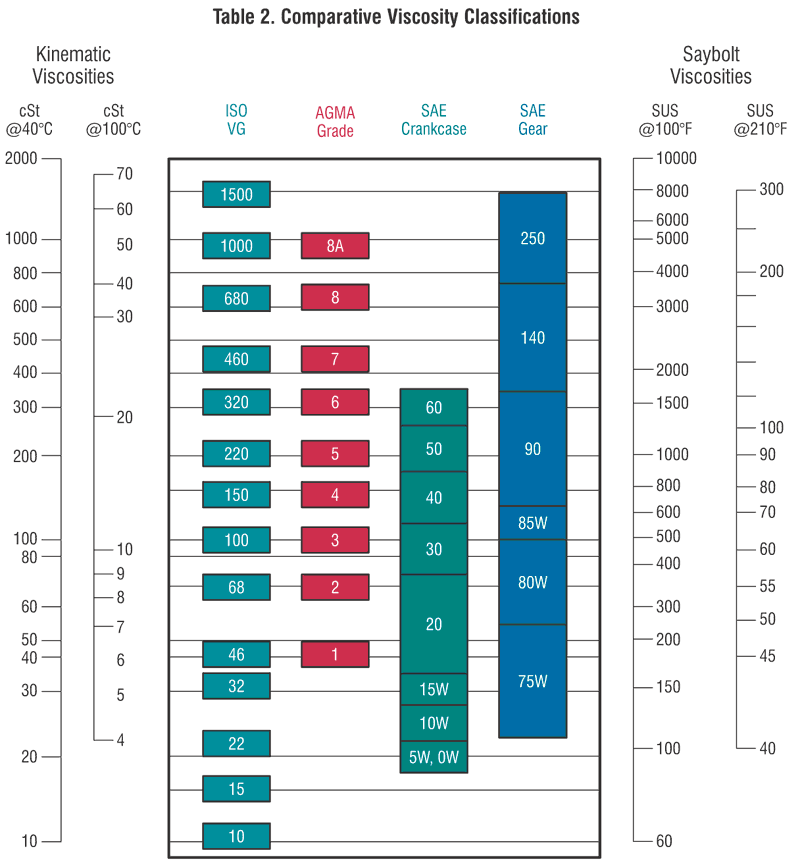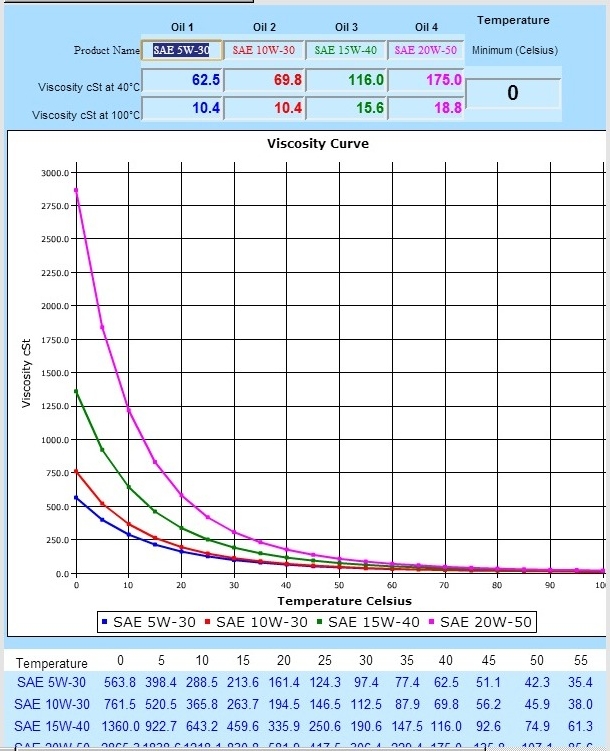View Poll Results: Specifically for the 2004-2008 5.4L V8 Triton, what oil do YOU use?
0W-40




9
1.06%
5W-20




474
55.76%
5W-30




289
34.00%
5W-40




18
2.12%
10W-30




33
3.88%
10W-40




13
1.53%
Any of them, it doesn't matter




5
0.59%
Other




9
1.06%
Voters: 850. You may not vote on this poll
5.4L Engine Oil - "What Should I Use?"
#141
Senior Member
Also, as a general observation from this thread, specific engine designs should also be considered. There's a reason the recommended oil for my truck is 5W-30 and the recommended oil for my car is 0W-20.
#142
Sunday morning I hit up a parts store, grabbed some 10w-30 diesel oil and a bunch of Marvel's Mystery Oil. 200 miles later (had to drive home from the lady's college reunion) there was 6 quarts of Delo XLE 400 semi-synth and a pint of MMO in the crank case. That run lasted about 2,000 miles before i couldn't see crosshatch on the dipstick. Eww.
Since that seemed a bit obscene to me, I did a solvent flush with Berryman's B12 Chemtool. Old School method, 1 1/2 oz B12 per quart of motor oil. Add to a cold engine, then fire it up and high-idle for 10-15 minutes.
I've never seen motor oil that black in my life; usually light is somewhat visible through the stream as it comes out of the drain plug... not this time. Add a couple of nasty thick 'Glops' of sludgy garbage to that oil drain and I'd say there was some neglect on this poor engine.
that's my story.
Since that seemed a bit obscene to me, I did a solvent flush with Berryman's B12 Chemtool. Old School method, 1 1/2 oz B12 per quart of motor oil. Add to a cold engine, then fire it up and high-idle for 10-15 minutes.
I've never seen motor oil that black in my life; usually light is somewhat visible through the stream as it comes out of the drain plug... not this time. Add a couple of nasty thick 'Glops' of sludgy garbage to that oil drain and I'd say there was some neglect on this poor engine.
that's my story.
I would recommend a quart of kero, diesel or for the best solvency BIO diesel for 10min at idle then drain. Harsh solvents can affect the seals, which get glazed over from the inside and dry out. Milder is better. MMO is great in the crankcase for maybe 500 miles before an oil change. The truck I just got with 109k had dirty oil, but a $15 top of the line Fram "synthetic" filter cranked on. So I decided not to do any flushing. If it just had a long run on good oil, at most just a short oil change for now. It's a 2nd vehicle so I'm just using some old Euro oils and Quaker State synth. I'll save my Pennzoil Ultra Viper-spec 0w-40 for my 400hp Audi station wagon.
For oil, people who want the best of all worlds can use a 0w-40. Whatever other synth oil you look at, 0w-40 guarantees the best possible formulation. The Mercedes page 229 specs being the most stringent in the world. Not bad in cold, won't kill gas mileage and plenty of visc & HT/HS in case you heat it up driving mountains or towing.
High miles oil is always a good choice. Mobil 1 High Miles 5w-30 and 10w-30 are pretty thick and have extra additives in the form of older API SL spec, allowing higher organo-metallic additives. Now a days we add boron, antimony, titanium, overbase calcium and even sodium additive packs. Anyone with valve noise might want to try Maxlife...Mobil Clean, Castrol GTX all use the sodium additive that I have witnessed it quiet lifters. I use mostly Pennzoil, but Conoco's Motorcraft is excellent, now I see 5w-30 in jugs too.
I'm not sure if people realize that 20 weight is just a hair thinner than commonplace API/ISLAC light 30 weight oil. Often, 30 weight sheers and fuel dilutes to a 20 weight anyway. The 30 weights go up quite a bit in range to the thick Euro 30s which are great but mostly replaced with 0w-40....which also sheers.

5w-40 is excessively thick in cold, like 3-4x thicker than 5w-30. Overly thick when hot, thicker than a 0w-40. Also a mpg killer. Did I mention that it's thick? If you like diesel-spec (dual-rated) oil, Rotella also comes in 10w-30...a thick 30. Won't have the slippery additives like a gas engine oil with API Starburst will.
Guys will like this. http://www.pqiamerica.com/
#143
generally, thin oil will clean better than thick. I don't think i would use a solvent like berryman's in the crankcase. Someone might be inclined to solvent flush an engine at idle for 10 min before draining it, maybe then...but when that solvent "flashes off" if redeposits whatever is dissolved in it, hopefully into the filter. But, just draining it is best.
I would recommend a quart of kero, diesel or for the best solvency bio diesel for 10min at idle then drain. Harsh solvents can affect the seals, which get glazed over from the inside and dry out. Milder is better. Mmo is great in the crankcase for maybe 500 miles before an oil change. The truck i just got with 109k had dirty oil, but a $15 top of the line fram "synthetic" filter cranked on. So i decided not to do any flushing. If it just had a long run on good oil, at most just a short oil change for now. It's a 2nd vehicle so i'm just using some old euro oils and quaker state synth. I'll save my pennzoil ultra viper-spec 0w-40 for my 400hp audi station wagon.
For oil, people who want the best of all worlds can use a 0w-40. Whatever other synth oil you look at, 0w-40 guarantees the best possible formulation. The mercedes page 229 specs being the most stringent in the world. Not bad in cold, won't kill gas mileage and plenty of visc & ht/hs in case you heat it up driving mountains or towing.
High miles oil is always a good choice. Mobil 1 high miles 5w-30 and 10w-30 are pretty thick and have extra additives in the form of older api sl spec, allowing higher organo-metallic additives. Now a days we add boron, antimony, titanium, overbase calcium and even sodium additive packs. Anyone with valve noise might want to try maxlife...mobil clean, castrol gtx all use the sodium additive that i have witnessed it quiet lifters. I use mostly pennzoil, but conoco's motorcraft is excellent, now i see 5w-30 in jugs too.
I'm not sure if people realize that 20 weight is just a hair thinner than commonplace api/islac light 30 weight oil. Often, 30 weight sheers and fuel dilutes to a 20 weight anyway. The 30 weights go up quite a bit in range to the thick euro 30s which are great but mostly replaced with 0w-40....which also sheers. :d
5w-40 is excessively thick in cold, like 3-4x thicker than 5w-30. Overly thick when hot, thicker than a 0w-40. Also a mpg killer. Did i mention that it's thick? If you like diesel-spec (dual-rated) oil, rotella also comes in 10w-30...a thick 30. Won't have the slippery additives like a gas engine oil with api starburst will.
Guys will like this. http://www.pqiamerica.com/
I would recommend a quart of kero, diesel or for the best solvency bio diesel for 10min at idle then drain. Harsh solvents can affect the seals, which get glazed over from the inside and dry out. Milder is better. Mmo is great in the crankcase for maybe 500 miles before an oil change. The truck i just got with 109k had dirty oil, but a $15 top of the line fram "synthetic" filter cranked on. So i decided not to do any flushing. If it just had a long run on good oil, at most just a short oil change for now. It's a 2nd vehicle so i'm just using some old euro oils and quaker state synth. I'll save my pennzoil ultra viper-spec 0w-40 for my 400hp audi station wagon.
For oil, people who want the best of all worlds can use a 0w-40. Whatever other synth oil you look at, 0w-40 guarantees the best possible formulation. The mercedes page 229 specs being the most stringent in the world. Not bad in cold, won't kill gas mileage and plenty of visc & ht/hs in case you heat it up driving mountains or towing.
High miles oil is always a good choice. Mobil 1 high miles 5w-30 and 10w-30 are pretty thick and have extra additives in the form of older api sl spec, allowing higher organo-metallic additives. Now a days we add boron, antimony, titanium, overbase calcium and even sodium additive packs. Anyone with valve noise might want to try maxlife...mobil clean, castrol gtx all use the sodium additive that i have witnessed it quiet lifters. I use mostly pennzoil, but conoco's motorcraft is excellent, now i see 5w-30 in jugs too.
I'm not sure if people realize that 20 weight is just a hair thinner than commonplace api/islac light 30 weight oil. Often, 30 weight sheers and fuel dilutes to a 20 weight anyway. The 30 weights go up quite a bit in range to the thick euro 30s which are great but mostly replaced with 0w-40....which also sheers. :d
5w-40 is excessively thick in cold, like 3-4x thicker than 5w-30. Overly thick when hot, thicker than a 0w-40. Also a mpg killer. Did i mention that it's thick? If you like diesel-spec (dual-rated) oil, rotella also comes in 10w-30...a thick 30. Won't have the slippery additives like a gas engine oil with api starburst will.
Guys will like this. http://www.pqiamerica.com/
#145
Please explain this. All 5W oils should flow about the same in cold temperatures. Why would one "40" be thicker than another "40" when hot?
#146
TOTM November 2019
iTrader: (2)
From what I understand, engine "flushes" are not suggested since what they loosen up can clog oil passages.
How do you know how effective your oil filter is? No one seems to like the Fram name on BITOG site.
Please explain this. All 5W oils should flow about the same in cold temperatures. Why would one "40" be thicker than another "40" when hot?
How do you know how effective your oil filter is? No one seems to like the Fram name on BITOG site.
Please explain this. All 5W oils should flow about the same in cold temperatures. Why would one "40" be thicker than another "40" when hot?
The following users liked this post:
Martian (02-27-2017)
#147
Some guy


Thread Starter
#148
Senior Member
The Tough Guard Fram is better. It still has cardboard end-caps but has 15% more filter area and made of a synthetic blend material with a claimed 99% efficiency of 30µm (microns) contaminant and a screened by-pass valve. 30µm contaminant is too small to see with the naked eye -- about the size of a white blood cell.
So their opinons there shouldn't apply to all Fram filters, but still does with a particularly stubborn and opinionated group of their forum members (and, well yes the lemmings...). The Ultra is actually a top tier filter, with synthetic filter media, stamped steel end caps.

There can be no consensus on which is the "best" oil filter. There's not enough publically available data, and while tests are conducted by the manufacturers to submit for specification, they are not required to disclose it publically. The best consensus we can come up with is that good oil filters are made of certain materials (synthetic filter media is much better than paper, paper end caps are bad, etc.) and it's up to consumers to research and come up with what is best for them based upon quality of components, filter area, capacity, and price, etc.
A good place to start is the Oil Filter Comparison Study. It's a little long in the tooth, but contains some very good information.
All multi-grade engine oils use modifiers, or viscocity improvers (polymeric molecules that are sensitive to temperature). At low temperatures, the molecule chain contracts and does not impact the fluid viscosity. At high temperatures, the chain relaxes and an increase in viscosity occurs.
This is where the whole debate about oil quality and synthetics vs. organic oils begins; as these additives break down (sheared), additives lose their ability to act as a more viscous fluid at higher temperatures.
Due to this, depending on the quality of the oil and the age -- not to mention contaminants, one "40" could be substantially thicker than another.
#149
I personally use 5w20 full synthetic i have 200k on my truck I purchased it at 150 and it was making noises from the cam phasers and every so often it would kick on the check engine light.... but since then i have been using the synthetic and no more noises and haven't had a check engine light since... personally I have been a long time stickler about just using conventional engine oil cause synth is so thin when warm i felt it didnt stick so well but i must say i drive this truck cross country 2 times a year and last time i did it pulling a trailer with an 89 f150 from AZ back to Jax FL poor truck only got 9-10 mpg but never missed a beat.... and checked the oil after running 6,000 miles using motorcraft FL8S filter and house brand WolfsHead synthetic 5w20 still clean and only 1/2qt low
#150
This is where it's deceiving because not all 5w- oils are the same in cold. Surely nobody would mistake a 5w-20 for a 5w-40 in cold....

Place a quart of each in the freezer and the difference is obvious.
We can revisit the cold visc issue if you have a question.
As for the "thick vs thin" variants of oil grades, 40 weight for instance, the various grades represent a visc range that is best described by it's technical measurment, centi-strokes, or cSt. 30 weights running from 10-12cSt at op temp, +100c. Just like 30 weights that come in thick Euro 30 or light ISLAC/API 30, we have 0w-40 and 5w-40 which are far apart on the scale. 0w-40 is more like a 5w-30 in cold...essentially the same as the Syntec 0w-30 on the graph.

In cold, these viscs can be 1000x thicker, with a 5w-40 being 3-4x thicker in cold than 5w-30. In some apps, like turbos or short trip driving the thin oil is a big help on cold start and warm-up.
Here's another graph I have already made....

Widman's graphing comparative visc calc...
http://www.widman.biz/English/Calculators/Graph.html
Last edited by Audi Junkie; 03-01-2017 at 03:40 AM.




